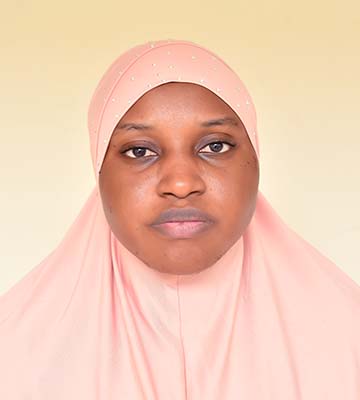Welcome to the website of the Department of Biosciences and Biotechnology at the University of Medical Sciences (UNIMED), Ondo City; home of the first specialized medical university in Nigeria. It is with great pleasure that I welcome you to the Department of Biosciences and Biotechnology family. Our Department was created in 2022 from the former Department of Biological Sciences to train a new generation of bioscientists the fundamentals of science through cutting-edge multidisciplinary teaching and research approaches. The programs offered in the Department include Animal and Environmental Biology, Environmental Management and Toxicology, and Plant Biology and Biotechnology.
Although the graduates from these programs receive different degrees, our faculty, together with students, have a fantastic relationship which culminates in the rapid growth and transformation of our Department. The multidisciplinary nature and flavor of our discipline give our students an edge over their contemporaries as they are exposed to other fields of Biosciences and Biotechnology than their primary subject.
We prepare our students for exciting careers in all branches of biosciences and biotechnology, environmental biology and toxicology, molecular biology and parasitology, aquaculture and hydrobiology, and ethnobotany. Our students are provided with adequate knowledge and laboratory skills to tackle our society’s pertinent challenges.
With our experienced and approachable lecturers, we assure you of world-class education in the Biosciences and Biotechnology at UNIMED. Welcome and enjoy your stay at Nigerian premier University of Medical Sciences.
Patrick Oluwagbemiga AYEKU, B.Sc ,M.Sc ,Ph.D
Ag. HOD
The specific learning objectives are the:
1. Ability to read, understand, and critically interpret the primary literature in Biosciences and Biotechnology in his/her area of interest.
2. Basic sciences (i.e., mathematics, statistics, physics, general and organic chemistry) necessary for upper-level biosciences coursework.
3. Knowledge of the dynamics of the components of the environment to ensure a stable and safe environment for man.
4. Knowledge and skills to maintain the environment and prevent infections and infestations for the overall improvement of human and animal health.
5. Terminology, principles and ability to explain the fundamental biomedical processes of metabolism, homeostasis, reproduction, development, and genetics, and the relationships between form and function of biological structures at the molecular, cellular, organismal, population, and ecosystem.
6. Fundamental methods, procedures, and techniques for conducting experimental and empirical research.





































